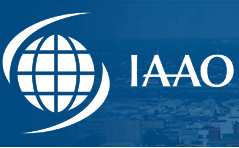Start Date
12-12-2014 2:15 PM
End Date
12-12-2014 3:00 PM
Description
This article will discuss and analyze some of the current trends in litigation and legislation relating to property appraisal, assessment administration, and property tax policies impacting clean energy in various jurisdictions throughout the United States. Ad valorem valuation practice around the country relating to the assessment of clean energy projects ranges from complete exemption to conventional depreciated replacement cost. While clean energy valuation issues remain uncertain in many jurisdictions, what is certain is that the growth of clean energy is not going to slow down in the near future. The U.S. Energy Information Administration, or EIA, predicts that 46 percent of new electricity consumption in the U.S. will come from clean energy by 2030.2 Until property owners, assessing officers, and legislators are able agree upon consistent and uniform guidelines for the valuation and taxation of clean energy projects in each state, litigation in this area is expected to continue.
Recommended Citation
Sullivan, William T. Esq., "Clean energy trends litigation & legislation" (2014). IAAO Annual Legal Seminar. 12.
https://researchexchange.iaao.org/legal/legal14/sessions/12
Clean energy trends litigation & legislation
This article will discuss and analyze some of the current trends in litigation and legislation relating to property appraisal, assessment administration, and property tax policies impacting clean energy in various jurisdictions throughout the United States. Ad valorem valuation practice around the country relating to the assessment of clean energy projects ranges from complete exemption to conventional depreciated replacement cost. While clean energy valuation issues remain uncertain in many jurisdictions, what is certain is that the growth of clean energy is not going to slow down in the near future. The U.S. Energy Information Administration, or EIA, predicts that 46 percent of new electricity consumption in the U.S. will come from clean energy by 2030.2 Until property owners, assessing officers, and legislators are able agree upon consistent and uniform guidelines for the valuation and taxation of clean energy projects in each state, litigation in this area is expected to continue.


